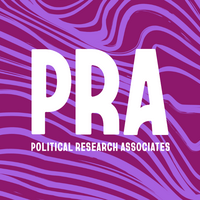The Christian Legal Society (CLS) is a Christian legal advocacy group active in the Right Wing’s redefining “religious liberty” campaign. Since 1980, CLS has operated a Center for Law and Religious Liberty, which has sought to argue high-profile cases—largely involving schools—and advise congress on legislation that can impact religious freedom. Its website provides resources for issues regarding public schools and universities, faith-based organizations, health care rights, and religion clause theory.
In 2010, CLS defended a Christian student group, which was denied university recognition after stripping voting rights from pro-LBGTQ rights members, before the Supreme Court (Christian Legal Society v. Martinez). The resulting 5-4 ruling against CLS has been the cause of some controversy.
CLS has brought similar cases against universities, such as a case against the University of Florida (UF) on behalf of Beta Upsilon Chi (BYX), a Christian fraternity. UF refused to grant recognition to the fraternity for violating university nondiscrimination policy. BYX made the case that such refusal violated its first and fourteenth amendment rights. The case was declared moot after UF amended its nondiscrimination policy to exempt student organizations “whose primary purpose is religious,” allowing BYX to limit membership based on religious beliefs. BYX further pursued its case, claiming that UF amended its policy simply to avoid liability, but the case was dismissed.
Lately, CLS has been pursuing the case (not yet filed as a legal matter) against Vanderbilt University for its new policy of nonrecognition of student organizations that require leaders to accept specific religious beliefs. This effort has been led by Kim Colby, senior counsel for CLS’s Center for Law and Religious Freedom since 1981. In February 2012, an open letter was written to board members at Vanderbilt to address what the attorneys and authors of the letter called an “impasse,” and to ask that a sentence be added to the university’s nondiscrimination policy similar to the one added to UF. However, in May 2012, Tennessee Governor Bill Haslam vetoed a bill, passed by large majorities in both houses of the state legislature, that would have overridden VU’s new “all-comers” policy regarding student groups. Haslam said that though he disagreed with VU’s policy, the government “should not dictate the policies of a private institution.”
Much of the work CLS has done prior to the past couple of years has been in the same vein as the Vanderbilt University controversy and the University of Florida case. They often represent Christian groups that are seeking a constitutional basis to discriminate against non-Christians, typically arguing that it is an exercise of first amendment rights. In 2006, CLS released a brochure on the topic of teachers and religion in public schools. In addition to these cases, CLS has also taken issue with the HHS provision, filing an amicus brief in support of Wheaton College and Belmont Abbey College. They have also proposed a bill which would amend the Affordable Care Act to overturn the HHS provision. CLS does not appear to collaborate significantly with many other organizations.
One notable member of the CLS board is Carl H. Esbeck, Professor of Law at the University of Missouri, who has published extensively on the topic of religious liberty and church-state relations. Recent and relevant publications include a chapter on the first amendment in the edited volume No Establishment of Religion, and an article entitled “Religious Freedom, Church-State Separation, and the Ministerial Exception” in the Northwestern Law Review Colloquy.
In 2011, CLS spent a total of $1,112,958 on program services. Of that, $293,958 went to attorney ministries; $103,784 went to legal aid ministries; $297,143 went to conferences; $120,677 went to law student ministries; and $297,396 went to the Center for Law and Religious Freedom. CLS hosts a number of ministries to help current and future attorneys “integrate their faith with the practice of law.”
This profile has been adapted from PRA’s 2013 Redefining Religious Liberty: The Covert Campaign Against Civil Rights report.
